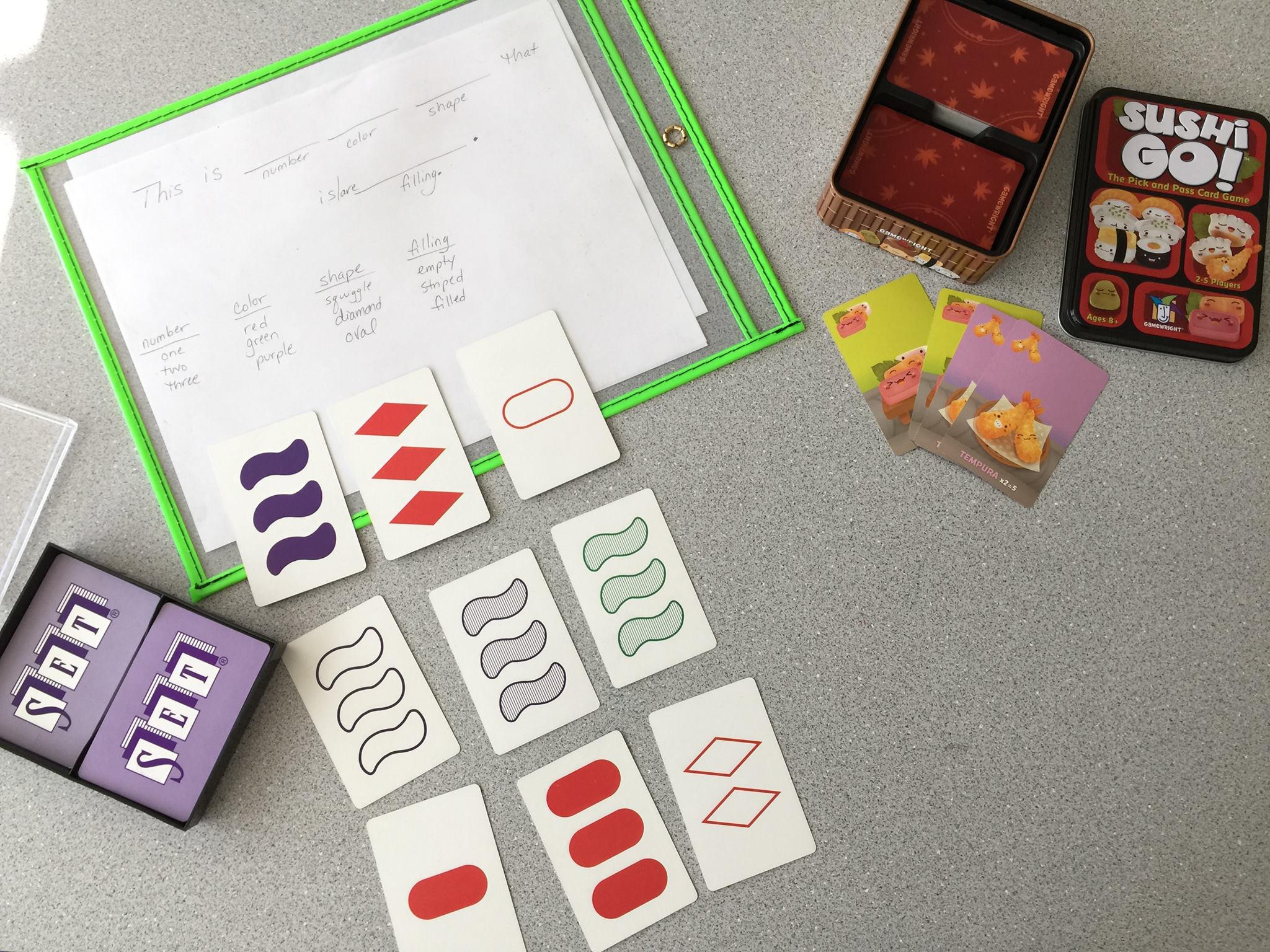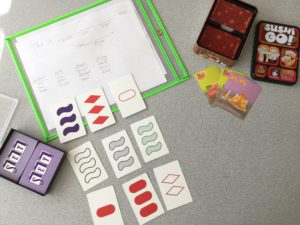
21 Jun Playing Games to Develop Executive Function
Recently, I was asked which games I would recommend for developing Executive Function (EF) skills. Generally, I think any game that involves some amount of strategy is great, whether that strategy is relatively simple (like which stick will you pull during a game of Honeybee Tree), somewhat more complex (like which card will you take first in Sushi Go), or very complex (like which piece will you move on your initial turn in Chess).
But the truth is, what makes games a ‘game-changer’ for EF is the conversation happening around the table. Games inherently require all sorts of executive skills, but to develop those skills in kids who are delayed, you need to talk ABOUT them.
For example, the first time you ever play a game, you’ll spend time reading the rules before you start. Find and verbalize any sequences in the play, visualize complex moves in your mind and describe them, consider creating visual supports … Then you might play a round while drawing attention to the fact that you need to go back to check the rules to clarify the play of the game. Talk with your child about how your understanding of the game is changing and evolving as you both play it. The second or third time you play, note how your game play changed from the first time you played it. Ask your child to describe how they’re playing differently. Explore with them how having that well developed picture of the goal in your minds affected your playing of the game. At the end of the game, put a stuffed animal on the table or pull up a picture of a favorite actor or singer on the computer and have your child describe to them how to play the game. Encourage them to state the goal of the game first – and then explore WHY that’s the most important thing for the listener to know. Then practice with a real person!
Lots of game require working memory. Talk about the strategy you’re using to remember elements as you play. For example, to play Sushi Go well, you need to remember what cards are in the other hands. Perhaps you’re focusing on a certain type of card to help you remember who has it … or perhaps you’re visualizing the cards and making associations between them to help you remember. The more you model your process, the more your child will become aware of their own strategies and “try on” some of yours as well.
 Flexibility, or the ability to shift, is another EF skill that can be developed through game play. I like using Set for both language development and flexibility practice. To find a set of three cards, you have to picture how the same card might be used differently depending on what the other cards in the set are. In this picture, you can see a graphic organizer I use to help children organize their thinking. The sentence frame at the top is used to describe one particular card; for children with EF or language delays, I spend time practicing describing cards before we ever start the game. It’s also fun to lay out several cards and have the child describe one for you to find. You can also describe one to the child and then have them wait with their body turned away from the cards for 30 seconds before they can turn back and start looking. For an extra challenge, describe the card, then ask them unrelated questions – can they hold on to the card description WHILE they answer your questions?
Flexibility, or the ability to shift, is another EF skill that can be developed through game play. I like using Set for both language development and flexibility practice. To find a set of three cards, you have to picture how the same card might be used differently depending on what the other cards in the set are. In this picture, you can see a graphic organizer I use to help children organize their thinking. The sentence frame at the top is used to describe one particular card; for children with EF or language delays, I spend time practicing describing cards before we ever start the game. It’s also fun to lay out several cards and have the child describe one for you to find. You can also describe one to the child and then have them wait with their body turned away from the cards for 30 seconds before they can turn back and start looking. For an extra challenge, describe the card, then ask them unrelated questions – can they hold on to the card description WHILE they answer your questions?
If you’re looking for more games to develop Executive Functions, here are 8 suggestions from Understood.com. What games do you have that can help develop EF skills?

